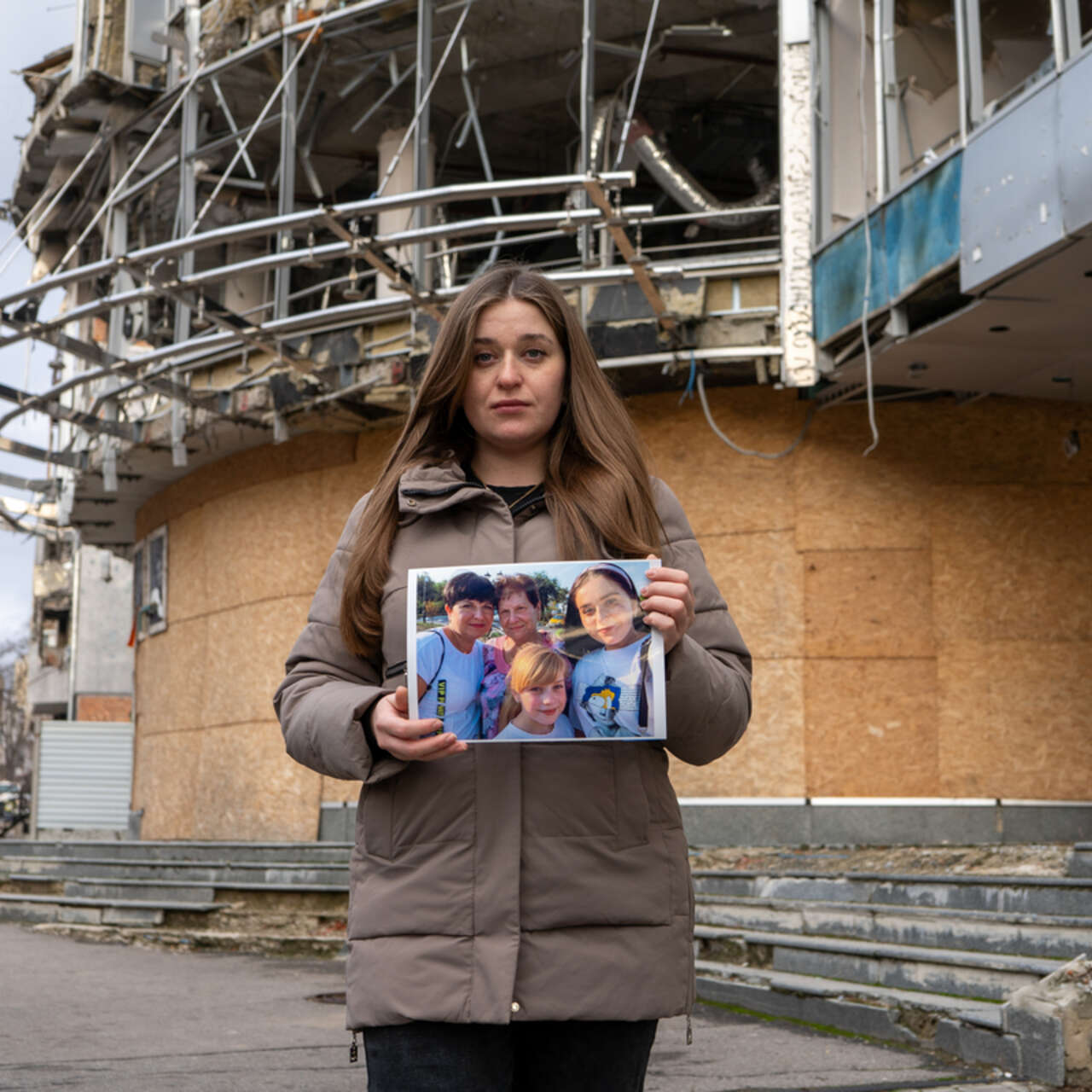
Three years on: Ukrainians show what the war has taken from them
Every day, people across Ukraine struggle to survive under relentless shelling, coping with the devastating physical and emotional toll of war.

Every day, people across Ukraine struggle to survive under relentless shelling, coping with the devastating physical and emotional toll of war.
A carefree family gathering. A joyful wedding day. A son’s graduation. For millions of Ukrainians, these moments feel like a distant memory. Three years of full-scale war have turned their lives upside down. Families are torn apart. Homes and cities lie in ruins. Countless lives have been lost.
Every day, people across Ukraine struggle to survive under relentless shelling, coping with the devastating physical and emotional toll of war. Yet, even in the face of such heartbreak, they cling to their most treasured memories—small but powerful reminders of what they’ve lost and the resilience that keeps them going.
Read on for a snapshot into six Ukrainians’ stories, three years into the war.
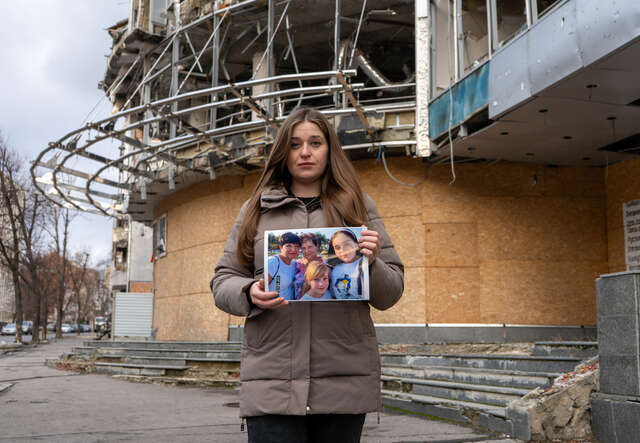
Marharyta, a former school teacher from Popasna in eastern Ukraine, first experienced the impact of war in 2014 when fighting erupted just a few kilometers from her home.
In 2022, the conflict forced Marharyta and her family to flee to another town. That year was filled with heartbreak—she lost both her grandmother and her beloved dog due to the stress of the situation. Even now, speaking about these losses often brings her to tears.
Marharyta’s mother and sister now live in another part of the country. In a poignant photo from 2021, they stand side by side in Bakhmut—a city now reduced to ruins by the ravages of war. Yet, through it all, Marharyta's commitment to working with children endures, now carried forward through her efforts with the IRC.
The events of 2022 have made her appreciate her family more than ever before. "We say "I love you" much more often now in our family," says Marharyta.
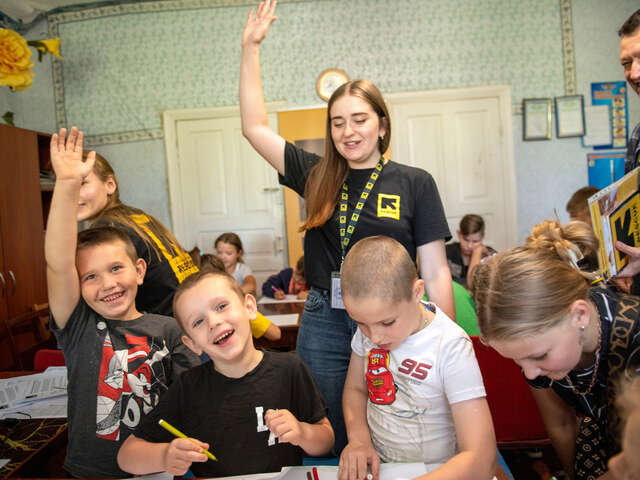
Oleh Marchenko dedicated his life to being a doctor and never imagined leaving his hometown of Mariupol, a place he loved for its proximity to the sea.
However, in 2022, escalating violence forced Oleh and his family to flee. They resettled in Kharkiv, a city that also faces frequent shelling.

Oleh can no longer return to Mariupol, where generations of his family once lived. His father has passed away, and his son, who is also a doctor, has relocated to Uman in central Ukraine.
Dr. Oleh’s commitment to helping others has remained steadfast as he leads the IRC mobile medical unit in Kharkiv, providing assistance to those in need throughout the region.
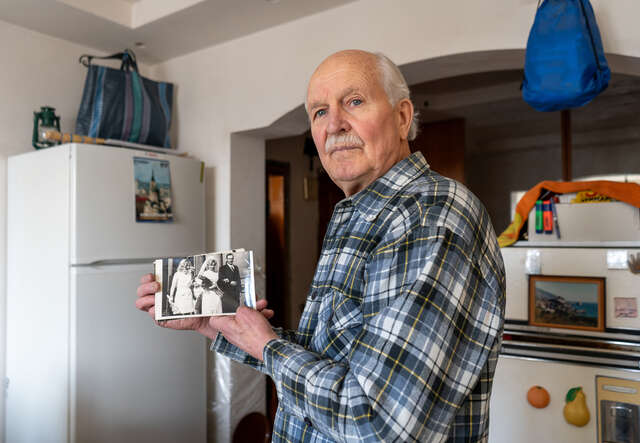
Before the war, Hyrhorii and his wife lived in an apartment in northern Kharkiv, the city where he had spent his entire life.
During the 2022 escalation, the neighborhood sustained severe damage, drawing significant media attention. Hryhorii’s daughter fled to the Netherlands with her mother, but he chose to stay behind, unwilling to leave their home vulnerable to looters.
Since then, Hryhorri’s home has been bombed and he is one of the few residents still living in the building, even though the city plans to demolish it.
He hasn’t seen his wife in two years and misses her deeply. He often reflects on the joy of their wedding day, drawing strength from the memories and the life they have built together.
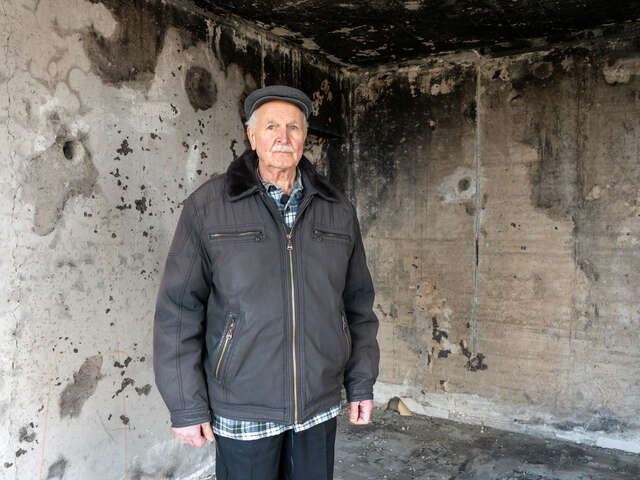
Shortly after the invasion began, Kateryna moved from the Pivnichna Saltivka district to a neighborhood closer to central Kharkiv after her home was damaged by shelling. Her 16-year-old granddaughter fled to Finland with her mother, but Kateryna decided to stay behind.

Repair work on her apartment is ongoing—with cash assistance from the IRC, Kateryna was able to install radiators, ensuring her apartment will be warm once the building’s heating system is restored.
Now Kateryna hasn’t seen her granddaughter in almost three years and misses her deeply. She still has her favorite toy—a giant teddy bear—as a cherished reminder of their bond.
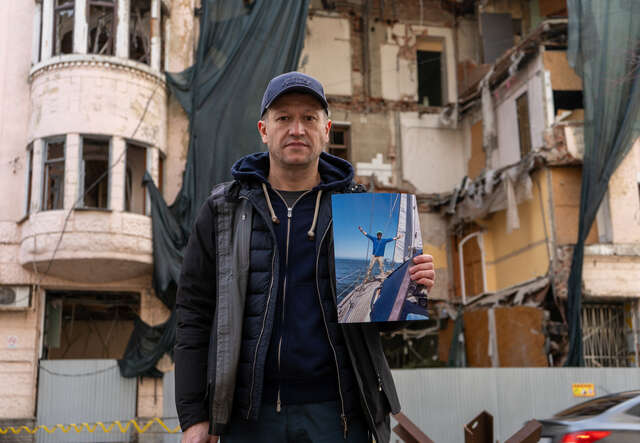
Andrii left Ukraine at 22 and spent 20 years working on child protection programs in South Africa. A passionate traveler, he explored the world and especially loved sailing.
However, when the full-scale war began, Andrii made the life-changing decision to return to Ukraine, knowing that, as a male citizen, he wouldn’t be able to leave until the war ended. Nevertheless, he was determined to go back and help in his hometown ofKharkiv.
In December 2022, he joined the IRC, bringing his expertise in child protection to support those who needed it the most. After spending half his life as a world traveler, he now lives in a country with closed borders—but he has no regrets.
Anastasiia was a student in Donetsk when the war first reached her in 2014. She fled to Kharkiv and, after a few years, began working in the humanitarian sector to support those from her home region.
Anastasiia was continuing her studies in Poland when the full-scale invasion began. Her family remains in eastern Ukraine, and reaching them now involves an exhausting 30-hour journey, spanning three trains from Poland.
Anastasiia remembers a happy day at the Kakhovka Reservoir, before the destruction of the dam and ecological disaster in the region caused devastating floods in 2023. “This photo reminds me of a time when things were good, when you could go wherever you wanted without limitations,” recalls Anastasiia. “On that boat, with my partner beside me, I felt free and alive.”
The IRC is on the ground delivering critical support to those on the frontlines and displaced across Europe.
Inside Ukraine, the IRC is focusing its assistance in areas most heavily affected by the war, particularly in the east and southeast of Ukraine.
From the start of the escalation until January 2025, IRC mobile health units have delivered over 100,000 consultations to more than 15,000 clients, while more than 100 health facilities have been equipped with donated medicines and essential supplies.
Working alongside local partners, our teams have provided financial assistance to nearly 130,000 people and distributed critical items to over 30,000 individuals. Furthermore, 60,000 women and girls have accessed vital IRC services, and our teams have organized 30,000 sessions for children, helping them reclaim a sense of childhood and begin to heal from the devastating effects of war.